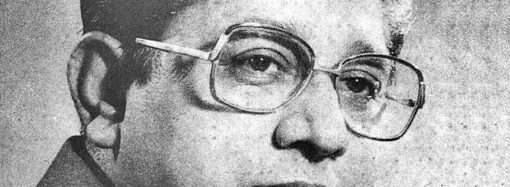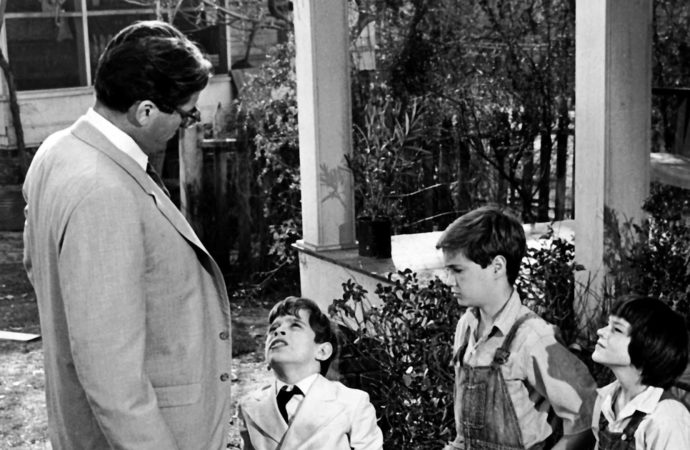The quintessence of ‘To kill a Mockingbird’ was in the fragility of its characters and their intrepid efforts.
It is always interesting to discuss the cinematic rendition of a book. You can easily recognize the strengths of the book and the compromised facets by the director in order to make a seamless screen adaptation. In addition to this, a good film adaptation can compel you to think about the plot and its characters in an original way. The characters which were once a vague sketch in your mind become alive and you tend to add more traits to their personality. The first book of Harper Lee, when was published in 1960, became a sensation after 30 million copies of it were sold.
When I planned to see the hugely successful adaptation of To Kill a Mockingbird four years ago, I expected an intricate screenplay. But, I am aphasic after watching it several times now. The more I watch it, more I fall for the naivete of its characters. Gregory Peck irrefutably is a perfect Attticus. A right blend of gravitas and amiability accompanied with floppy-haired loveliness makes him equally adorable as his counterpart in the book. One can say that Peck happened to be closest thing to Atticus Finch, who vehemently opposed McCarthy, a Vietnam war critic. If I wasn’t aware of the text, I could have pointed out nuances of the film in a better way.
The director was able to churn some sequences very well in this movie such as Boo Radley leaving gifts for kids in a tree’s hole. However, one thing striked me in this classic. Despite being spellbound by a perfect on-screen Atticus, I felt that Brock Peters got less screen time as compared to him. I could easily sense a reader’s curiosity about Brock Peters. Brock is the actor who plays the character of Tom Robinson, the accused whom the protagonist defends. It is due to his less screen presence, his fine performance that speaks volumes goes unnoticed.
Even Harper Lee’s striking plot was not able to convince most of the Hollywood directors to prepare the screen adaptation of this book. Robert Mulligan, who directed the film for Universal, had told a leading American daily at the time of the film’s release that other studios were not interested in making a movie about a middle-aged lawyer and his two children. The plot was also deficient in romance and violence. For me, the quintessence of story was in the fragility of its characters, the nobility of their intentions, and their intrepid efforts. It is about the innocent world of children affected by the evil deeds of adults. The two kids are six-year-old Scout which happens to be the narrator, and her 10-year-old brother Jem. Both live with their lawyer father, Atticus Finch in the nondescript town of Alabama.
During the long and hot summer days of 1932, Scout and her brother play with a friend in their neighbourhood. Scout get into tiffs with her school mates, both the siblings try to unravel the mystery behind the ramshackle house at the end of their street, and travail to find out more about its mysterious occupant. Scout grows up with wise words of her father buzzing in her ears and conscience that say, “If you can learn a simple trick, Scout, you’ll get along a lot better with all kinds of folks. You never really understand a person until you consider things from his point of view until you climb into his skin and walk around in it.” As the story progresses, Atticus is asked to defend a black man falsely accused of raping a white woman. The courtroom sequence is one of my favourites in the movie, where the children witness their father demolishing the prosecution with his wit and ingenuity.
It is here, Atticus, the father substantiates his words into action for his daughter. To me remarkable moment was when he explains to her the reason behind defending Tom Robinson, “I wanted you to see what real courage is, instead of getting the idea that courage is a man with a gun in his hand. It’s when you know you’re licked before you begin but you begin anyway and you see through it no matter what.” Further, when he prepares the children mentally for the trial of Tim Robinson which is bound to be ugly, he tells his daughter, “I couldn’t go to church and worship God if I didn’t try to help the man. The one thing that doesn’t abide by majority rule is a person’s conscience.”
For his performance as an immovable humanitarian and wise lawyer Atticus, Gregory Peck won an Oscar. Mary Badham as Scout without any acting experience and Philip Alford as Jem were equally unforgettable for me. The effortlessness in their acting is a bliss to watch. The most unforgettable sequence of the movie was Scout’s innocent talk with Mr. Cunningham where she tells him that his son Walter was her classmate and asks him to say ‘hi’ to him. Cunningham humbled by her innocence retreats along with carloads of men who had come to lynch Tom Robinson. The film was nominated for two other Academy awards and was nominated in eight categories, including the best picture.
It is now known to everyone that for 55 years Lee didn’t publish novel. In 2015, she came up with a prequel, Go Set a Watchman. Her loyal readers and the entire publishing world went into frenzy with this book. Set two decades later, this novel is darker version of her previous famous novel. It is the more intricate book, and more speculative of the living characters around us. Here, the Atticus is not noble and humanitarian as portrayed in To Kill a Mockingbird. On the contrary, he is a segregationist and racist. But, an uncle of Scout tells her, “Every man’s island, every man’s watchman, is his conscience.” Her father told similar thing to her when she was a child. Both, the movie and the prequel carry forward Harper Lee’s legacy of inculcating a deep sense of righteousness in every individual perfectly.


















Leave a Comment
Your email address will not be published. Required fields are marked with *